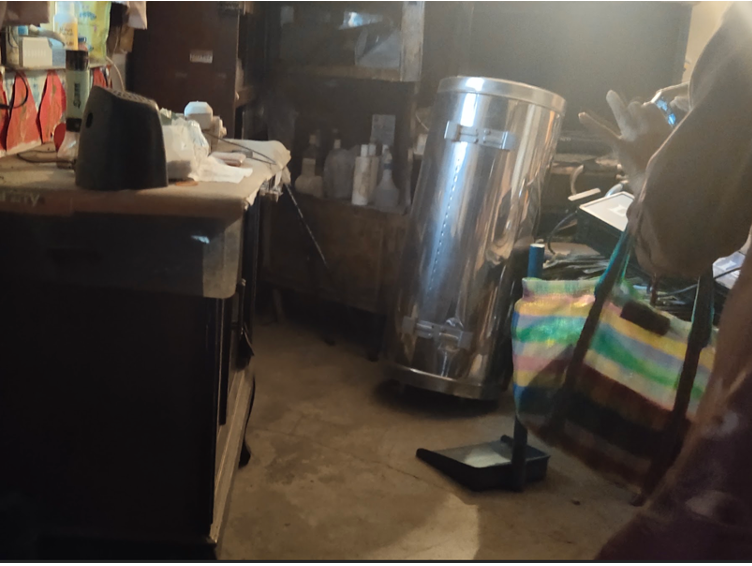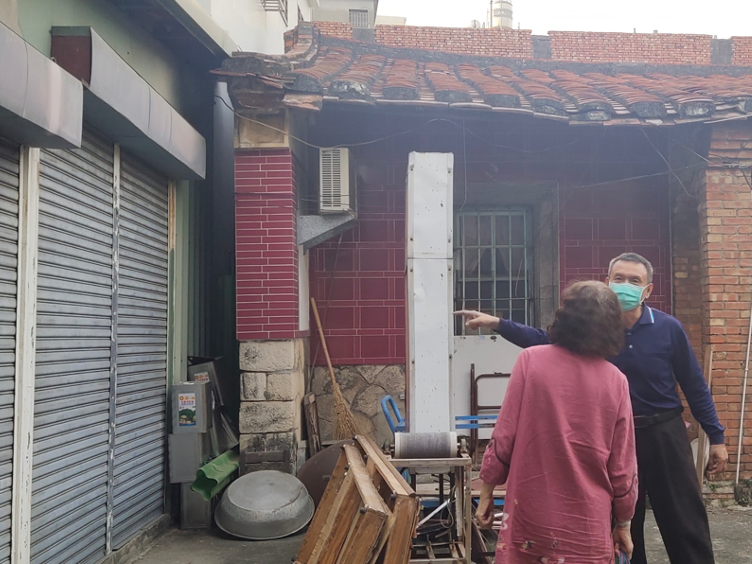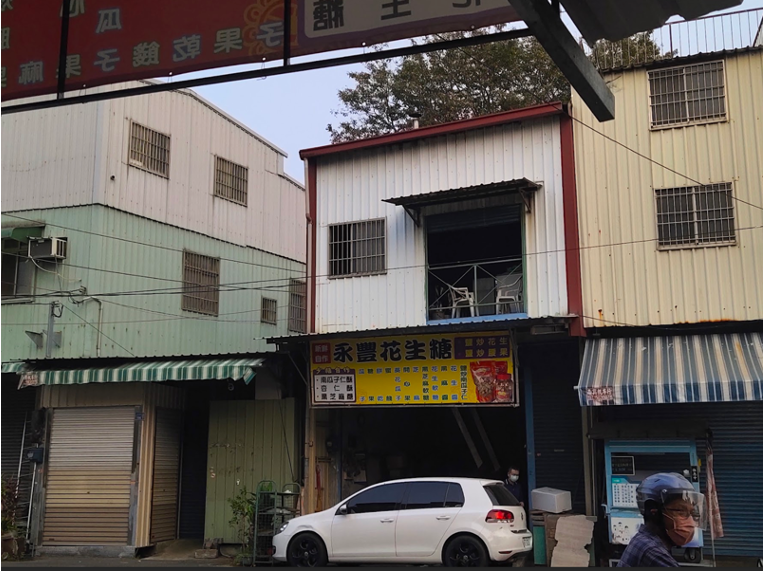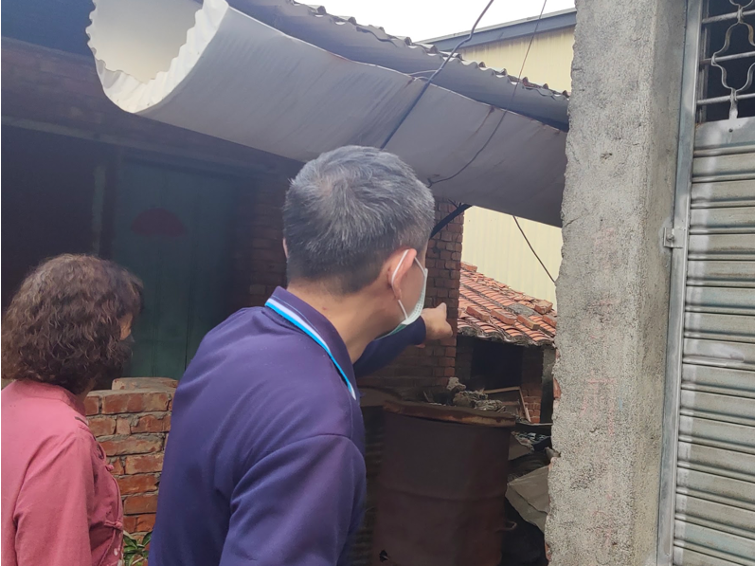by 易冠霈
“From raw peanuts to the creation of peanut sugar, not many places follow through the entire process like we do," Mr.Yu passionately explained. "From raw peanuts to peanut sugar, maintaining a consistent operation, I personally see it through. I have more confidence in the quality of our products due to this approach."
Mr. Yu enthusiastically shared with us the process of peanut processing, as well as the context and connection between peanuts and Zuoying old town. In the 1950s, the Zuoying area was predominantly farmland, with the main crop being water chestnuts. It was also a distribution center for peanuts. At that time, many businesses around Zuoying old town would purchase peanuts from the Kaohsiung and Pingtung areas and engage in peanut processing. With changes in industries and urban development, farmland turned into construction sites, leading to a reduction in the number of peanut processing businesses. Today, only a few remain in operation. Yongfeng Peanut Sugar is one of the businesses that illuminated its sign in that historical context. Established by Mr. Yu's grandfather in Yu's ancient house, the shop has been passed down through three generations, with Mr. Yu being the current successor.
"Why did Mr.Yu decide to take over?" I curiously asked.
"At that time, after completing my military service, seeing my parents working hard, I felt reluctant to let them bear the burden alone. So, I returned home to help share the physical labor and learned the art of peanut processing," Mr.Yu explained. Taking full control, he adapted to the changing food trends and developed a new product – peanut sugar.
When asked about Mr. Yu's impression of his grandfather processing peanuts in the ancestral home, he chuckled and replied, "I was too young, I don't remember." However, when the topic shifted to his experience living in the ancient house, Mr.Yu's eyes lit up, and he shared many childhood anecdotes. At that time, nearly ten people lived under the same roof, with a pigsty built of red bricks in front of the house, and even two deep wells! In the conservative era, even the use of water had to adhere to gender norms. The one on the left was called 'Dragon Well,' accessible only to biological males, and the one on the right was 'Tiger Well,' accessible only to biological females. During the Dragon Boat Festival, neighbors nearby would come to draw water from these two wells during 'noon,' and Mr. Yu chuckled, saying, "We were quite skilled at that when we were young, though it was tiring." Although the two wells have been dismantled for quite some time, he can still point out their locations based on memory. In an era before television became widespread, owning a TV was a coveted luxury.
After elementary school, neighbors would gather at Mr. Yu's house to watch programs together. He said, "The TVs back then still had sliding doors!" During festive occasions, due to the presence of a large stove at home, Grandma and Mother would cook various rice-based foods (mochi, Wa Gui), starting from milling the rice, with each step handmade. The playful children on the side looked forward most to the "khì-tsuí" (soda) after paying respects, and HeySong Soda was a highly valued commodity at that time. In these expressions, one can feel the glorious moments of the ancient house and a profound sense of happiness.
In recent years, Mr.Yu's father has been living alone in the ancestral home. However, after a fall and injury this year, the ancestral home remains unoccupied, though Mr.Yu still visits regularly to offer incense. Regarding the organization and maintenance of the ancestral home, He mentioned that the renovation and upkeep are both costly, and preserving it afterward requires considerable effort. In his words, one can sense his dedication and the challenges he faces in maintaining his family's house.
Towards the end of the interview, I asked Mr.Yu about his thoughts on the future of the ancestral home and the old town.
Mr.Yu sighed and said, "The government wants to preserve the ancestral homes and culture, but they also can't infringe on people's property rights. I hope the government can have comprehensive measures in place." This statement left a profound impression on me during the interview. In the past, I always felt that historical artifacts should be preserved as much as possible. However, hearing the perspective of the ancestral home's owner made me realize that, for them, it is not just a house or cultural asset; it signifies 'heritage.' It is the property passed down from ancestors to descendants. Through this interview, I gained a new perspective on cultural preservation. Preserving historical sites is a way to glimpse into the past, so documenting these stories is also a valuable aspect of cultural preservation !

拉門式電視

虎井變為車庫

從本店面拍對面的永豐花生糖招牌

豬舍
